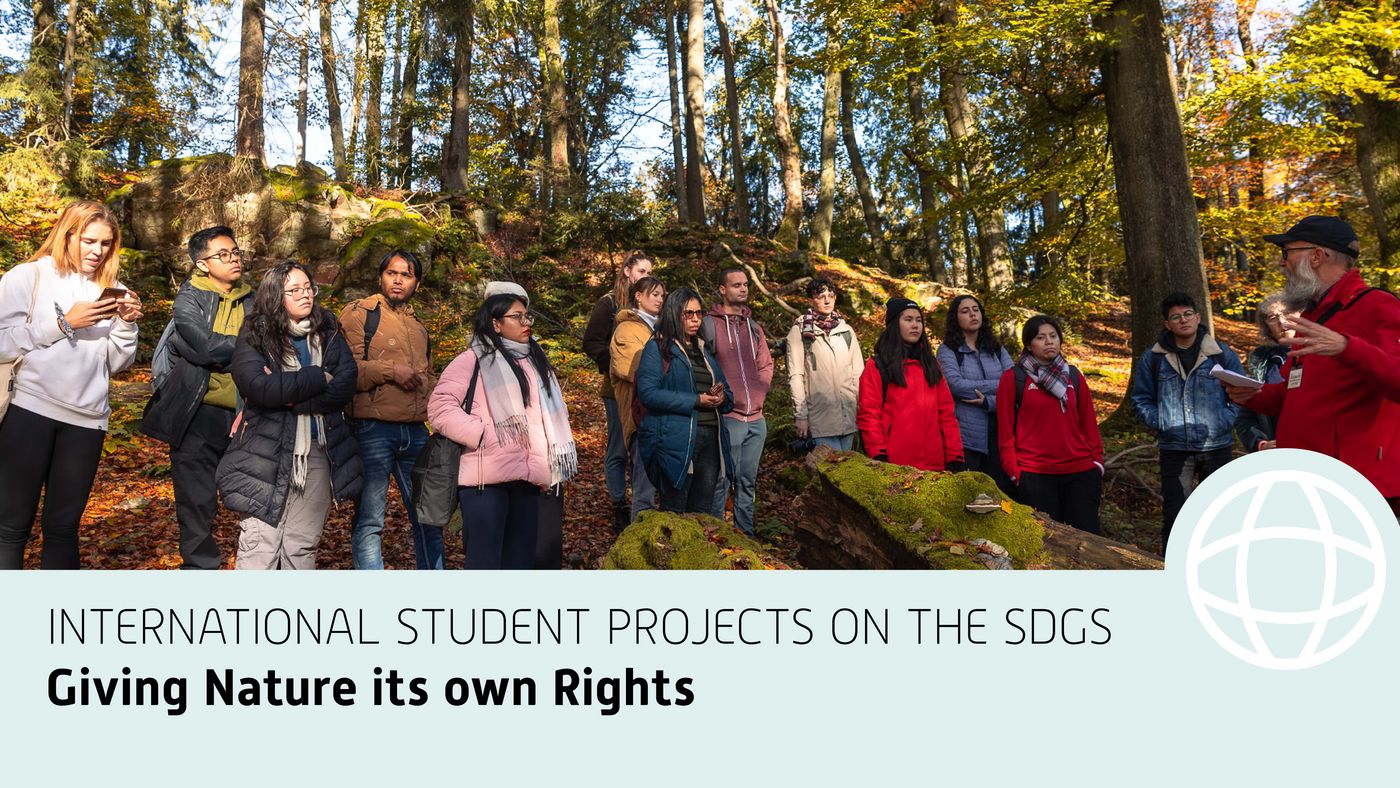Students from the three partner universities are developing a transcultural concept for nature's own rights with a view to the sustainability goals of the United Nations from a holistic scientific perspective and against the background of indigenous ideas
The current discussions about improving the legal protection of natural resources and the demand for separate rights for nature have their origins in the 1970s. In view of the climate crisis and the deficits in environmental protection, the debate has regained political significance. Current developments such as the ‘Rights of Nature Network’, the EU study ‘Can nature be recognised as a legal entity’ or the initiative for a Bavarian referendum ‘Giving nature rights’ are evidence of this. The need to grant nature subjective rights and give it constitutional status will be considered within the project from a holistic natural science perspective and discussed against the background of indigenous concepts of living nature. Prominent examples of this are the Whanganui River in New Zealand, the Río Atrato in Colombia and, more recently, the Mar Menor in Spain or the Pacha Mama in indigenous cultures in South America. From a European perspective, the question arises as to how such an eco- or biocentric counter-image can be integrated into legal or social systems.
In a transnational online lecture series, the students from Trier University of Applied Sciences and the partner universities from Portugal and Peru first acquired theoretical expertise in the fields of ethics, law, administration, civil society, non-profit management, environmental/nature/climate protection law and planning law. In a next step, they virtually exchanged best-practice approaches from the respective countries in international mixed teams and, under the guidance of experts from theory and practice, developed a transcultural concept for their own rights of nature with a view to the United Nations Sustainable Development Goals. The possibilities and limitations of implementing such an ecocentric concept in existing anthropocentric legal systems and their legal practice were discussed, evaluated and made tangible in a concluding project week at Trier University of Applied Sciences using the example of the Hunsrück-Hochwald National Park.

Please note: Information will be sent to Youtube/Google as soon as you start the video. For further information visit Google Privacy.
You are leaving the official website of Trier University of Applied Sciences